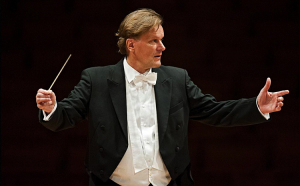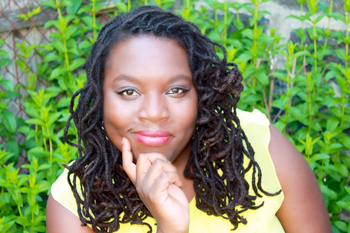by Nicholas Stevens

In concerts at the Parma-Snow branch of the Cuyahoga Public Library on December 7 and at St. Noel Church in Willoughby Hills on December 10, the ensemble made Mozart’s Sinfonia Concertante in E-flat easy to love, adapting to unexpected hurdles and divergent acoustics. Concertmaster Miho Hashizume and principal violist Jonathan Bagg sounded inches rather than yards away from the bleacher-style seats of the Library auditorium, which boasts the echoless character of a large recording studio. St. Noel’s sanctuary, by contrast, is full of warm reverberation.
The orchestra sounded brilliant in both rooms: precise and unified in the Library, and rich in the Church. Uncannily coordinated, the soloists blended best at St. Noel, where Hashizume’s bright, clear tone recalled birdsong and Bagg’s viola sang with all the shading of a first-rate lyric tenor. A consummate professional, Hashizume poured feeling into the piece even after her bow snapped mid-movement at the Library. Love is a complicated thing. It may feel different based on context, and unforeseen setbacks may occur — but it persists.
The Wesendonck Lieder, which informed Wagner’s music-drama Tristan und Isolde, acknowledge the conflicting emotions that can arise when one falls in love. Soprano Chabrelle Williams executed flawless performances of each song. Her voice seemed to wear the orchestral sound like a fine silk robe, remaining rich and powerful whether murmuring or soaring. Throughout, Williams demonstrated rarefied levels of control and sensitivity.

Last on the program, Schubert’s Symphony No. 3 pulsed with energy. The musicians of CityMusic lavished care on its every phrase, from clarinetist Dan Gilbert’s exchange with flutist Elizabeth Buck near the beginning to the breakneck string passages of the finale. Eighteen years old when he wrote the Symphony, Schubert had yet to fully liberate himself from stock gestures and genre conventions. CityMusic nevertheless sold the piece, channeling its boundless energy into sparkling renditions.
Beckoned back by ovations, Williams sang Schubert’s Ave Maria as an encore in Parma, and Gruber’s Silent Night in Willoughby Hills. Willich conducted both at moderate tempos, carrying the enthusiasm of the rest of the concert over into these familiar songs. Williams, as ever, shone.
Published on ClevelandClassical.com December 11, 2017.
Click here for a printable copy of this article


